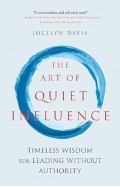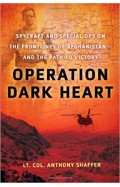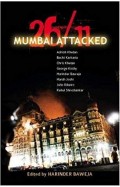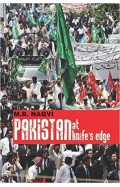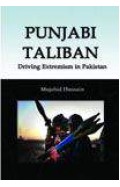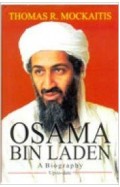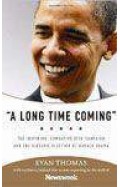- Home
- Books
- Sale
- Book Bazaar RP Up To 60% Off
- Deliver Us From Evil: Peacekeepers, Warlords and a World of Endless Conflict
Deliver Us From Evil: Peacekeepers, Warlords and a World of Endless Conflict
By: William Shawcross
-
Rs 1,980.00
Due to constant currency fluctuation, prices are subject to change with or without notice.
We're offering a high
discount on this book as it is slightly damaged
Reporting from war zones around the globe, acclaimed journalist William Shawcross gives us an unforgettable portrait of a dangerous world and of the brave men and women, ordinary and extraordinary, who risk their lives to make and keep the peace.
The end of the Cold War was followed by a decade of regional and ethnic wars, massacres and forced exiles, and by constant calls for America to lead the international community as chief peace-keeper. The efforts of that community -- identified with the United Nations but often dominated by the world's wealthy nations -- have had mixed results. In Africa, the West is accused of indifference or too little, too late. In Cambodia, the UN presides over free elections, but the results are overridden. In Iraq, Saddam Hussein continues to defy the UN, and in Bosnia and Kosovo, the West acts hesitantly after terrible slaughter and ethnic cleansing.
Shawcross, a veteran of many war zones, has had broad access to global policymakers, including UN secretary general Kofi Annan, high American diplomats, peacekeepers and humanitarian-aid professionals. He has traveled with them to some of the world's most horrifying killing fields. Deliver Us from Evil is his stark, on-the-ground report on the many crises faced by the international community and its servants as they struggle to respond around the world. He brings home the price many have paid attempting to restore peace and help alleviate terrible suffering. He illuminates the risks we face in a complex and dangerous world.
Some critics have concluded that some interventions may prolong conflict and create further casualties. The lesson we learn from ruthless and vengeful warlords the world over is that goodwill without strength can make things worse. Shawcross argues that recent interventions -- in Kosovo and East Timor, for example -- provide reason for concern as well as hope.
Still, the unmistakable message of the past decade is that we cannot intervene everywhere, that not every wrong can be righted merely because the international community desires it, or because we wish to remove images of suffering from our television screens. Nor can we necessarily rebuild failed states in our image. When we intervene, we must be certain of our objectives, sure of popular support and willing to expend the necessary resources -- even lives. If our interventions are to be effective and humane, they must last for more than the fifteen minutes of attention that the media accord to each succeeding crisis.
That is a tall order. As Shawcross concludes, "In a more religious time it was only God whom we asked to deliver us from evil. Now we call upon our own man-made institutions for such deliverance. That is sometimes to ask for miracles."
We're offering a high
discount on this book as it is slightly damaged
Reporting from war zones around the globe, acclaimed journalist William Shawcross gives us an unforgettable portrait of a dangerous world and of the brave men and women, ordinary and extraordinary, who risk their lives to make and keep the peace.
The end of the Cold War was followed by a decade of regional and ethnic wars, massacres and forced exiles, and by constant calls for America to lead the international community as chief peace-keeper. The efforts of that community -- identified with the United Nations but often dominated by the world's wealthy nations -- have had mixed results. In Africa, the West is accused of indifference or too little, too late. In Cambodia, the UN presides over free elections, but the results are overridden. In Iraq, Saddam Hussein continues to defy the UN, and in Bosnia and Kosovo, the West acts hesitantly after terrible slaughter and ethnic cleansing.
Shawcross, a veteran of many war zones, has had broad access to global policymakers, including UN secretary general Kofi Annan, high American diplomats, peacekeepers and humanitarian-aid professionals. He has traveled with them to some of the world's most horrifying killing fields. Deliver Us from Evil is his stark, on-the-ground report on the many crises faced by the international community and its servants as they struggle to respond around the world. He brings home the price many have paid attempting to restore peace and help alleviate terrible suffering. He illuminates the risks we face in a complex and dangerous world.
Some critics have concluded that some interventions may prolong conflict and create further casualties. The lesson we learn from ruthless and vengeful warlords the world over is that goodwill without strength can make things worse. Shawcross argues that recent interventions -- in Kosovo and East Timor, for example -- provide reason for concern as well as hope.
Still, the unmistakable message of the past decade is that we cannot intervene everywhere, that not every wrong can be righted merely because the international community desires it, or because we wish to remove images of suffering from our television screens. Nor can we necessarily rebuild failed states in our image. When we intervene, we must be certain of our objectives, sure of popular support and willing to expend the necessary resources -- even lives. If our interventions are to be effective and humane, they must last for more than the fifteen minutes of attention that the media accord to each succeeding crisis.
That is a tall order. As Shawcross concludes, "In a more religious time it was only God whom we asked to deliver us from evil. Now we call upon our own man-made institutions for such deliverance. That is sometimes to ask for miracles."
The Allies The United States, Britain and Europe in the Aftermath of the Iraqi War
By: William Shawcross
Rs 495.00 Ex Tax :Rs 495.00
Allies: The U. S., Britain, Europe, And The War in Iraq
By: William Shawcross
Rs 790.00 Ex Tax :Rs 790.00
Deliver Us From Evil: Peacekeepers, Warlords and a World of Endless Conflict
By: William Shawcross
Rs 1,980.00 Ex Tax :Rs 1,980.00
Deliver Us from Evil - Peacekeepers, Warlords and a World of Endless Conflict
By: William Shawcross
Rs 500.00 Ex Tax :Rs 500.00
Zubin Mehta: A Musical Journey (An Authorized Biography)
By: VOID - Bakhtiar K. Dadabhoy
Rs 840.00 Rs 1,050.00 Ex Tax :Rs 840.00
The Art of Quiet Influence - Timeless Wisdom for Leading Without Authority
By: Jocelyn Davis
Rs 2,795.00 Ex Tax :Rs 2,795.00
Blood and Silk: Power and Conflict in Modern Southeast Asia
By: Michael Vatikiotis
Rs 4,795.00 Ex Tax :Rs 4,795.00
Walt Disney; Triumph of the American Imagination(Deckle Edge)
By: Neal Gabler
Rs 2,895.00 Ex Tax :Rs 2,895.00
Apple: The inside Story of Intrigue, Egomania, and Business Blunders
By: Jim Carlton
Rs 295.00 Ex Tax :Rs 295.00
Myths Illusions and Peace: Finding a New Direction for America in the Middle East
By: Dennis Ross
Rs 1,095.00 Ex Tax :Rs 1,095.00
Operation Dark Heart: Spycraft And Special Ops On The Frontlines Of Afghanistan And The Path To Victory
By: Anthony Shaffer
Rs 1,800.00 Rs 2,250.00 Ex Tax :Rs 1,800.00
Anna Hazare: The Face Of Indias Fight Against Corruption
By: Pradeep Thakur
Rs 300.00 Ex Tax :Rs 300.00
How To Win A Cosmic War God Globalization And The End Of War
By: Reza Aslan
Rs 695.00 Ex Tax :Rs 695.00
A Long Time Comming: The Inspiring Combative 2008 Campaign And
By: Evan Thomas
Rs 795.00 Ex Tax :Rs 795.00
The Art of Quiet Influence - Timeless Wisdom for Leading Without Authority
By: Jocelyn Davis
Rs 2,795.00 Ex Tax :Rs 2,795.00
Blood and Silk: Power and Conflict in Modern Southeast Asia
By: Michael Vatikiotis
Rs 4,795.00 Ex Tax :Rs 4,795.00
Walt Disney; Triumph of the American Imagination(Deckle Edge)
By: Neal Gabler
Rs 2,895.00 Ex Tax :Rs 2,895.00
Apple: The inside Story of Intrigue, Egomania, and Business Blunders
By: Jim Carlton
Rs 295.00 Ex Tax :Rs 295.00
No recently viewed books available at the moment.
Zubin Mehta: A Musical Journey (An Authorized Biography)
By: VOID - Bakhtiar K. Dadabhoy
Rs 840.00 Rs 1,050.00 Ex Tax :Rs 840.00
The Allies The United States, Britain and Europe in the Aftermath of the Iraqi War
By: William Shawcross
Rs 495.00 Ex Tax :Rs 495.00
Allies: The U. S., Britain, Europe, And The War in Iraq
By: William Shawcross
Rs 790.00 Ex Tax :Rs 790.00
Deliver Us From Evil: Peacekeepers, Warlords and a World of Endless Conflict
By: William Shawcross
Rs 1,980.00 Ex Tax :Rs 1,980.00
Deliver Us from Evil - Peacekeepers, Warlords and a World of Endless Conflict
By: William Shawcross
Rs 500.00 Ex Tax :Rs 500.00
The Art of Quiet Influence - Timeless Wisdom for Leading Without Authority
By: Jocelyn Davis
Rs 2,795.00 Ex Tax :Rs 2,795.00
Blood and Silk: Power and Conflict in Modern Southeast Asia
By: Michael Vatikiotis
Rs 4,795.00 Ex Tax :Rs 4,795.00
Walt Disney; Triumph of the American Imagination(Deckle Edge)
By: Neal Gabler
Rs 2,895.00 Ex Tax :Rs 2,895.00
Apple: The inside Story of Intrigue, Egomania, and Business Blunders
By: Jim Carlton
Rs 295.00 Ex Tax :Rs 295.00














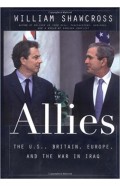
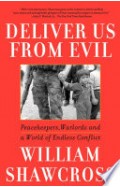
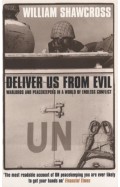
-120x187.jpg?q6)






